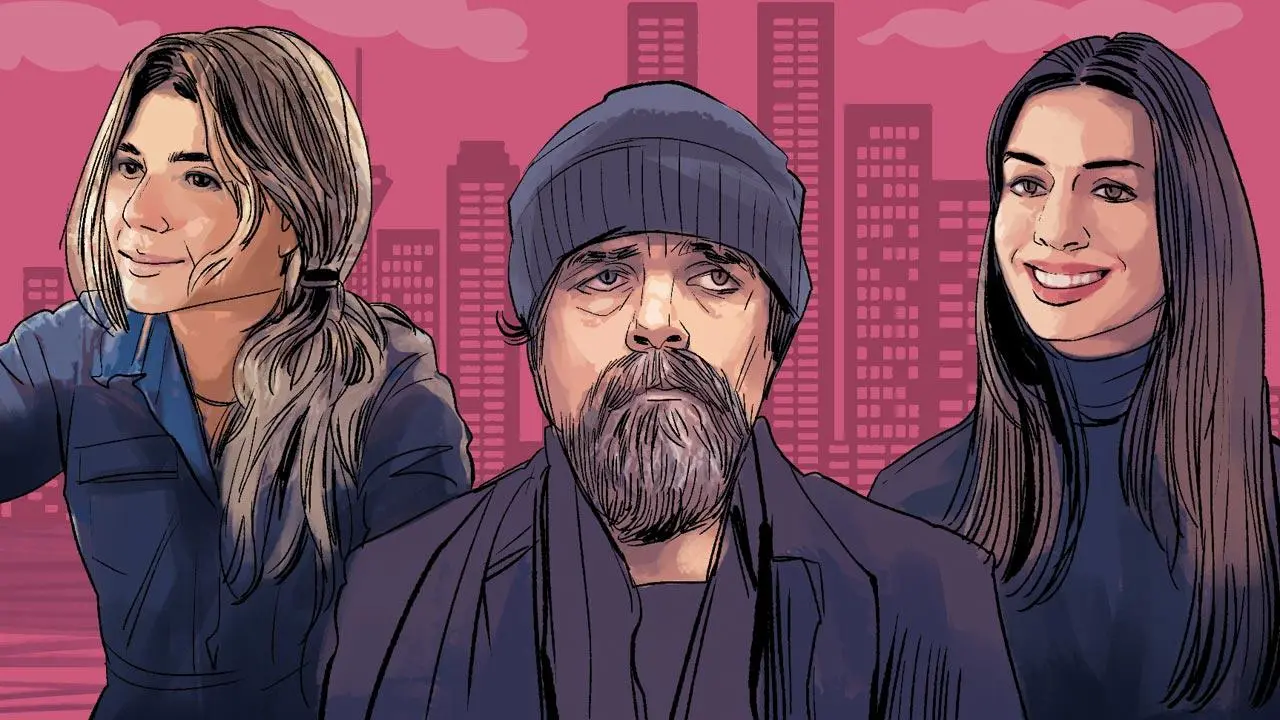Dinklage makes haste to leave, falls into the water and whoosh! His creative block is gone, as an entire new opera passes before his eyes

Illustration/Uday Mohite
![]() Some weeks ago, I chanced upon a strange and sublime film on Netflix, by accident. I had never heard of it and had no idea what it was about. I decided to sample it for a few minutes and never took my eyes off it. Directed by Rebecca Miller, She Came To Me is a love story of sorts, or perhaps, more accurately, a story of love featuring an unexpected cast of characters.
Some weeks ago, I chanced upon a strange and sublime film on Netflix, by accident. I had never heard of it and had no idea what it was about. I decided to sample it for a few minutes and never took my eyes off it. Directed by Rebecca Miller, She Came To Me is a love story of sorts, or perhaps, more accurately, a story of love featuring an unexpected cast of characters.
Peter Dinklage plays an opera composer who is going through a terrible creative block. He has married his one-time shrink, Anne Hathaway, who is obsessed with cleaning and longs to be a nun. Morose and moody, Dinklage is sent off by his psychiatrist wife on a walk to clear his head-clouds. He encounters Marisa Tomei, a tug-boat captain, in a bar. She confesses she is a recovering love addict. Nevertheless a hook-up ensues on the tug-boat, after which we understand that Tomei is recovering, not recovered. Dinklage makes haste to leave, falls into the water and whoosh! His creative block is gone, as an entire new opera passes before his eyes.
To say more would be to issue spoilers and I hold myself back not because that would ruin the plot for you, but because you should experience fresh, the forgotten sweetness of watching something without being manipulated into it. Almost everything we see now insists that we binge it. It holds us hostage through adrenaline and marketing. We watch because we ought to, and to serve social media’s opinion assembly line. We hate-watch, we anxiety-watch, because movies and shows are now events supposed to hold us collectively captive, rather than captivate us with charm and suggestive wisdoms and just a story.
She Came to Me has several unexpected twists and turns. But they defy the edge-of-your-seat logic of twisty plots. Most of the characters have what might, in the tenor of the times, be called mental health conditions, some kind of neuroses. But the film seems to suggest that perhaps it’s not quirky to be neurotic as much as it is normal. Everyone is a little strange because what else does it mean to be human? The over-therapised, sanitised self, shorn of weirdness that is currently sold to us, sounds suspiciously obedient, rather too suitable for a fascist world.
The idea of love itself struggles to be understood now, analysed as it is through a series of sociological lenses. In movies, a character who is a love addict usually exists to prove that romance is a patriarchal ruse, and any relationship such a character has will perforce be ‘problematic’. What if one day, her love addiction should bear fruit? Does love exist? She Came to Me suggests it does, and it comes holding hands with our individual weirdness. A film so confident as to not be showy, willing to be loved by chance, is a miracle-sighting in these insistent times. In a lonely world, this novelistic detour may do much to calm your too-furiously beating heart.
Paromita Vohra is an award-winning Mumbai-based filmmaker, writer and curator working with fiction and non-fiction. Reach her at paromita.vohra@mid-day.com
 Subscribe today by clicking the link and stay updated with the latest news!" Click here!
Subscribe today by clicking the link and stay updated with the latest news!" Click here!








